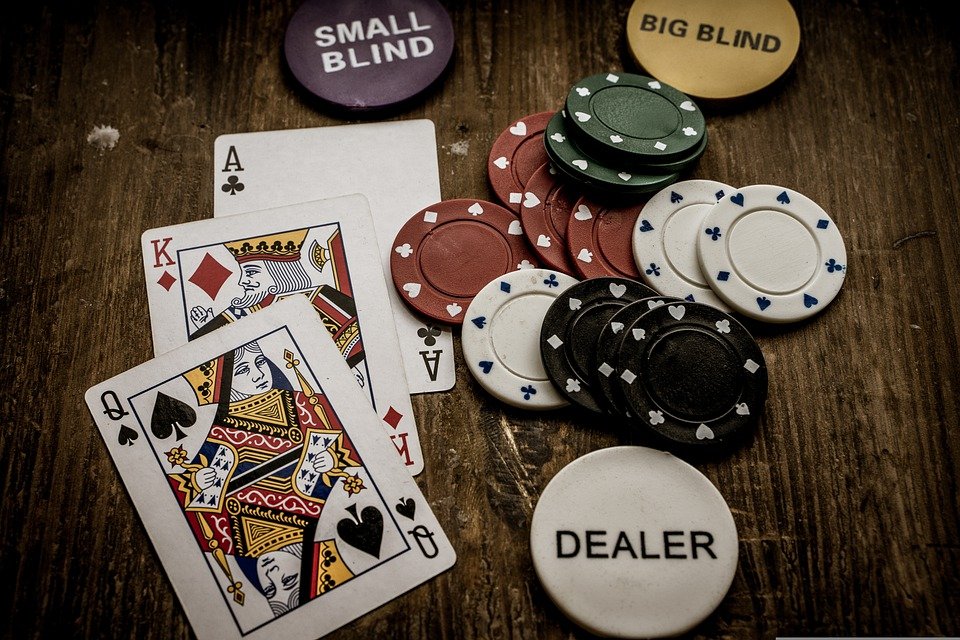
Position in poker refers to the order in which players act during a hand. It is a crucial aspect of the game as it can greatly affect a player’s decision-making process and ultimately their chances of winning. In this article, we will discuss the importance of position in poker and provide some tips on how to use it to your advantage.
The Importance of Position in Poker: How it Can Make or Break Your Game
Poker is a game of strategy, skill, and luck. One of the most important aspects of the game is position. Position refers to where you are seated at the table in relation to the dealer. It can make or break your game, and understanding its importance is crucial to becoming a successful poker player.
The position is divided into three categories: early position, middle position, and late position. Early position is the first three seats to the left of the dealer. Middle position is the next three seats, and late position is the last three seats, including the dealer. The later your position, the more advantageous it is.
In early position, you have the least amount of information about the other players’ hands. You have to act first, which means you have to make a decision without knowing what the other players will do. This puts you at a disadvantage because you have to make a decision based on incomplete information.
In middle position, you have a little more information than in early position. You can see what the players in early position do before you have to act. This gives you a better idea of what kind of hands they have. However, you still have to be cautious because the players in late position can still act after you.
In late position, you have the most information about the other players’ hands. You can see what everyone else does before you have to act. This gives you a significant advantage because you can make a more informed decision. You can also use this information to bluff or steal the pot.
The importance of position cannot be overstated. It can mean the difference between winning and losing a hand. For example, if you have a marginal hand in early position, you might fold. However, if you have the same hand in late position, you might raise or call because you have more information about the other players’ hands.
Here are some tips for using position to your advantage:
1. Play tight in early position.
This means only playing strong hands like pocket aces, kings, queens, and ace-king. Avoid playing marginal hands like suited connectors or small pairs.
2. Play more hands in late position.
This means playing a wider range of hands because you have more information about the other players’ hands. You can also use your position to bluff or steal the pot.
3. Pay attention to the other players’ positions.
If a player in early position raises, it usually means they have a strong hand. If a player in late position raises, it could mean they are trying to steal the pot.
4. Use your position to control the pot.
If you have a strong hand in early position, you can raise to build the pot. If you have a weak hand in early position, you can check to keep the pot small.
5. Be aware of the blinds.
The blinds are the forced bets that the two players to the left of the dealer have to make. If you are in late position, you can use this to your advantage by raising to steal the blinds.
Position is a crucial aspect of poker. It can make or break your game, and understanding its importance is essential to becoming a successful poker player. By playing tight in early position, playing more hands in late position, paying attention to the other players’ positions, using your position to control the pot, and being aware of the blinds, you can use position to your advantage and increase your chances of winning.
Maximizing Your Advantage: Tips for Playing Different Positions in Poker
When it comes to playing poker, position is everything. The position you are in at the table can greatly affect your chances of winning. In this section, we will discuss the importance of position in poker and provide some tips for maximizing your advantage based on your position.
Firstly, let’s define what we mean by position in poker. Position refers to where you are seated at the table in relation to the dealer. The dealer is always in the best position, as they get to act last in each betting round. The positions to the left of the dealer are known as early positions, while the positions to the right of the dealer are known as late positions.
So, why is position so important in poker? Well, the later your position, the more information you have about the other players’ actions. This means you can make more informed decisions about whether to bet, call, or fold. For example, if you are in a late position and everyone before you has checked, you can assume that they don’t have a strong hand and may be bluffing. This gives you the opportunity to make a bet and potentially win the pot.
On the other hand, if you are in an early position, you have less information about the other players’ hands. This means you need to be more cautious with your bets, as you could easily be outplayed by someone in a later position. In general, it is best to play tight in early positions and loosen up as you move towards the later positions.
Now that we understand the importance of position in poker, let’s look at some tips for maximizing your advantage based on your position.
Early Positions
As mentioned earlier, playing tight in early positions is key. This means only playing strong hands such as pairs, high suited connectors, and high cards. Avoid playing weak hands such as low suited connectors or low cards, as these are unlikely to win the pot.
Middle Positions
In middle positions, you can start to loosen up a bit and play more hands. However, you still need to be cautious and avoid playing weak hands. Look for opportunities to make a raise or re-raise if you have a strong hand, as this can help you win the pot.
Late Positions
In late positions, you have the most information about the other players’ hands. This means you can play more aggressively and take advantage of weaker players. Look for opportunities to steal the blinds or make a big bet if you have a strong hand. However, be careful not to overplay your hand and get caught out by a stronger player.
Overall, position is a crucial factor in poker and can greatly affect your chances of winning. By understanding the importance of position and following these tips, you can maximize your advantage and increase your chances of success at the table. Remember to always play within your limits and never bet more than you can afford to lose. Good luck at the tables!
The Power of Late Position: How to Use it to Your Advantage

One of the most important aspects of poker is position. Position refers to where you are seated at the table in relation to the dealer. The position you are in can have a significant impact on the outcome of the game. Here, we will discuss the power of late position and how to use it to your advantage.
Late position is the last few seats at the table, including the dealer button. Being in late position gives you a significant advantage over your opponents. You get to see what your opponents do before you have to act. This allows you to make more informed decisions and adjust your strategy accordingly.
One of the biggest advantages of being in late position is that you get to see how your opponents play their hands. You can observe their betting patterns, how they react to certain situations, and how they play different hands. This information can be invaluable when it comes to making decisions later in the game.
Another advantage of being in late position is that you have more control over the pot. You can use your position to manipulate the pot size by raising or calling bets. This can force your opponents to make difficult decisions and can give you an edge in the game.
When playing in late position, it is important to be aware of your opponents’ tendencies. If you notice that a player is playing aggressively, you may want to play more conservatively. On the other hand, if you notice that a player is playing passively, you may want to take advantage of this by playing more aggressively.
One of the keys to success in late position is to be patient. You don’t want to get too aggressive too quickly and risk losing your advantage. Instead, take your time and wait for the right opportunities to present themselves.
Another important tip for playing in late position is to be aware of your table image. If you have been playing aggressively, your opponents may be more likely to fold when you make a bet. On the other hand, if you have been playing passively, your opponents may be more likely to call your bets.
In addition to being aware of your opponents’ tendencies, it is also important to be aware of the cards on the table. If there are a lot of high cards on the table, it may be more difficult to make a strong hand. On the other hand, if there are a lot of low cards on the table, it may be easier to make a strong hand.
Finally, it is important to remember that position is not the only factor in the game. You still need to have a solid strategy and be able to read your opponents’ hands. However, being in late position can give you a significant advantage and can help you win more hands.
In conclusion, position is a crucial aspect of poker. Being in late position can give you a significant advantage over your opponents. You get to see what your opponents do before you have to act, which allows you to make more informed decisions. To use late position to your advantage, it is important to be patient, be aware of your opponents’ tendencies, be aware of the cards on the table, and have a solid strategy. By following these tips, you can increase your chances of winning more hands and becoming a successful poker player.
The Dangers of Playing Out of Position: Common Mistakes to Avoid
Here, we will discuss the dangers of playing out of position and common mistakes to avoid.
Playing out of position means that you are one of the first players to act in a hand. This can put you at a disadvantage because you have less information about the other players’ hands. When you are in an early position, you have to act before the other players, which means you have to make a decision without knowing what the other players will do. This can lead to making mistakes and losing chips.
One of the most common mistakes that players make when playing out of position is calling too many raises. When you are in an early position, you should be more selective about the hands you play. You should only play strong hands that have a good chance of winning. If you call too many raises, you will end up losing chips and putting yourself in a difficult position for the rest of the hand.
Another mistake that players make when playing out of position is not betting enough. When you have a strong hand, you should bet aggressively to build the pot and put pressure on your opponents. If you don’t bet enough, you give your opponents a chance to catch up and beat you. This can be especially dangerous if you are playing against aggressive players who like to bluff.
Playing out of position can also lead to getting trapped in a hand. This happens when you have a strong hand, but your opponents have a better hand. If you are in an early position, you may not realize that your opponents have a better hand until it is too late. This can lead to losing a lot of chips and putting yourself in a difficult position for the rest of the game.
To avoid these common mistakes, you should be more selective about the hands you play when you are in an early position. You should only play strong hands that have a good chance of winning. You should also bet aggressively when you have a strong hand to build the pot and put pressure on your opponents. Finally, you should be aware of the other players’ actions and adjust your strategy accordingly.
In conclusion, position is an important aspect of poker that can have a significant impact on your chances of winning a hand. Playing out of position can be dangerous and lead to common mistakes that can cost you chips. By being more selective about the hands you play, betting aggressively when you have a strong hand, and being aware of the other players’ actions, you can avoid these mistakes and increase your chances of winning. Good luck at the tables!
Mastering Positional Play: Strategies for Dominating the Table

Position is an element that can have a significant impact on your chances of winning. Here, we will discuss the importance of position in poker and provide some tips for mastering positional play.
Why is Position Important in Poker?
Position is important in poker because it gives you an advantage over your opponents. When you are in a later position, you have more information about what your opponents are doing. You can see how they are betting and reacting to the cards on the table. This information can help you make better decisions about whether to bet, call, or fold.
In contrast, when you are in an early position, you have less information about what your opponents are doing. You have to make decisions based on limited information, which can be risky. You may end up making a mistake and losing a lot of chips.
Tips for Mastering Positional Play
Now that you understand the importance of position in poker, let’s discuss some tips for mastering positional play.
1. Pay Attention to Your Position
The first step to mastering positional play is to pay attention to your position at the table. Always be aware of where you are seated in relation to the dealer. This will help you make better decisions about when to bet, call, or fold.
2. Play Tighter in Early Position
When you are in an early position, it is important to play tighter. This means that you should only play strong hands, such as pocket aces or kings. Avoid playing weaker hands, such as suited connectors or low pairs. This will help you avoid making mistakes and losing chips.
3. Play More Aggressively in Late Position
When you are in a later position, you can play more aggressively. This means that you can bet and raise more often. You can also bluff more effectively because you have more information about what your opponents are doing. However, be careful not to overdo it. You don’t want to become too predictable and lose your advantage.
4. Use Position to Steal Blinds
One of the best ways to use your position to your advantage is to steal blinds. When you are in a late position and the players in the early positions have folded, you can raise to steal the blinds. This can be a very effective strategy, especially if the other players are playing tight.
5. Be Aware of Your Opponents’ Positions
Finally, it is important to be aware of your opponents’ positions. This will help you make better decisions about when to bet, call, or fold. If you know that a player is in an early position and has raised, you can assume that they have a strong hand. If a player is in a later position and has raised, they may be bluffing.
In conclusion, is a crucial aspect of poker. It can have a significant impact on your chances of winning. By mastering positional play, you can gain an advantage over your opponents and increase your chances of success. Remember to pay attention to your position, play tighter in early position, play more aggressively in late position, use position to steal blinds, and be aware of your opponents’ positions. With these tips, you can become a master of positional play and dominate the table.
 Skip to content
Skip to content





